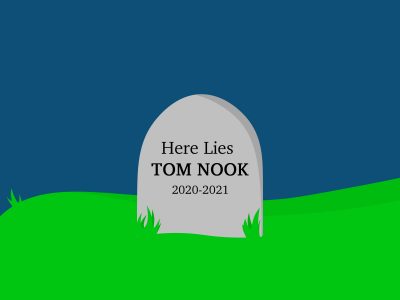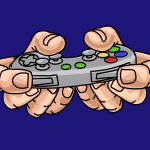Although it was just an unbelievably lucky coincidence, in hindsight, the planned release date for Animal Crossing: New Horizons — March 20, 2020 — seems to be a stroke of marketing genius for Nintendo.
March 20 was almost the exact day the world stopped turning — one day after the first state issued a stay-at-home order, and four days after Boston University transitioned to fully remote instruction.
The new Animal Crossing game quickly became a social phenomenon, since it was released to a population with an unprecedented amount of free time. The game was quaint and sunny, allowing the player to tend to a village populated by anthropomorphic animals while the sun rose and fell in real time.
While the structure of our real lives was imploding before our eyes, we could escape to a world full of rewarding activities on a regular schedule, where sociability and the outdoors were still possible.

The situation was catnip to culture writers, who waxed poetic in publications such as The New York Times, The New Yorker and HuffPost about how important the game was to their mental health during “these strange times.”
As one journalist joked in a recent article for Slate, you were either ready to download New Horizons on release day, or you came to it after “the 9,000th think piece about how everyone was playing.”
When quarantine first began, I played Animal Crossing religiously, along with everyone else. As the months passed, though, my interest started to slow down. By the time I moved into BU, I had more or less stopped playing entirely. After five months of daily play, it began to feel more like a chore than a game, so I put it down.
As it turns out, Animal Crossing burnout is a common phenomenon even among enthusiasts.
Several hardcore players interviewed by Polygon in July of last year suffered from it, accumulating so much playtime so quickly that the magic began to fade. Another article noted more optimistically that this transition from addict to occasional user finally made players consume the game at the “right speed.”
So the trajectory of the typical Animal Crossing player seems to be: an obsession with the game spanning the first few weeks after release, which tapers down into an integration into their daily routine and finally almost complete disinterest.
These are the same three phases — stages of grief, in a sense — we have all experienced under quarantine: mass hysteria, gradual acceptance and total numbness.
For the first few weeks, staying inside was completely unbearable. School wasn’t in session, toilet paper was scarce and celebrities tried to lift our spirits with an embarrassingly tone-deaf — in both senses of the phrase — cover of John Lennon’s “Imagine.”
The only thing keeping us going was our myopic hope that quarantine was temporary. The worst-case scenario was a return to normalcy by midsummer, we told ourselves. Animal Crossing: New Horizons was an addiction then.
Gradually, we came to terms with the “new normal,” another phrase that started to feel cliche.
Online learning went from a two-week wait-and-see period to an entire semester online, so we eventually learned Zoom’s confusing interface.
I received my high school diploma in a parking lot and only cried once about all the senior year experiences I would never get back.
We chuckled and shook our heads when former President Donald Trump suggested we inject ourselves with a disinfectant.
Animal Crossing became a small piece of my daily routine.
Now, eleven months later, the accumulated stress of the pandemic has made us completely numb. We don’t even notice that we live like this. Flashing a green badge at my dining hall and dorm feels as natural as breathing.
Issues such as the BU administration’s mistreatment of high-risk library employees and Massachusetts’ disastrous vaccine rollout intensify the abject helplessness. I don’t play Animal Crossing anymore because the pandemic is too real to feel like a fad or a vacation.
If Animal Crossing: New Horizons’ reputation for posterity is going to be “the pandemic game” — which seems to be the case, if 2020 year-in-review articles are any indication — I hope people remember more than just its obvious utility as an escapist fantasy.
Remember that we squeezed the life out of it and played it for hours until the spiritual malaise of the pandemic world spread even to our innocent in-game towns.




